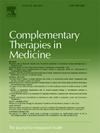中西医结合治疗慢性心力衰竭的有效性和安全性:综述
IF 3.5
3区 医学
Q1 INTEGRATIVE & COMPLEMENTARY MEDICINE
引用次数: 0
摘要
背景和目的心力衰竭(HF)与多器官功能障碍和显著的发病率和死亡率相关。尽管治疗取得了进展,但预后仍然很差,因此需要探索辅助疗法,如综合医学。本综述综合了来自随机对照试验(rct)的系统评价和荟萃分析的顶级证据,评估了中西医结合治疗心衰患者的安全性和有效性,以便为临床决策提供信息。方法检索MEDLINE、Cochrane、PsycINFO和EMBASE,检索时间截止到2024年4月。主要结局包括死亡率、住院率、严重程度或预后指标,包括脑钠肽(BNP)和运动能力。我们采用了一种分层证据合成方法,通过这种方法,我们纳入了针对我们的研究问题的最新的、排名最高的和全面的综述。我们使用“评估系统评价的测量工具”来评估评价质量,并在可能的情况下,使用建议分级评估、发展和评估方法来评估我们的主要结果的证据确定性。结果共纳入22篇综述。辅酶Q10或太极可能降低死亡率和住院率(中等确定性证据),针灸或静脉注射中草药可能改善BNP(低至极低确定性证据)。瑜伽和包括左旋肉碱在内的其他营养补充剂的益处尚不清楚。维生素E可能会增加住院率,应该避免。结论大多数中西医结合方式辅助治疗心衰的证据仍然有限。需要精心设计和严格的随机对照试验,特别是长期随访和评估临床有意义的结果。本文章由计算机程序翻译,如有差异,请以英文原文为准。
The effectiveness and safety of integrative medicine for chronic heart failure: An umbrella review
Background and purpose
Heart failure (HF) is associated with multi-organ dysfunction and significant morbidity and mortality. Despite advances in treatment, prognosis remains poor, highlighting the need to explore adjunctive therapies such as integrative medicine. This umbrella review synthesises top-tier evidence from systematic reviews and meta-analyses of randomised controlled trials (RCTs) assessing the safety and effectiveness of integrative medicine in patients with HF, in order to inform clinical decision-making.
Methods
We searched MEDLINE, Cochrane, PsycINFO and EMBASE until April 2024. Primary outcomes included mortality, hospitalisation rates, and severity or prognostic indicators, including brain natriuretic peptide (BNP) and exercise capacity. A hierarchical evidence synthesis method was used whereby we included the most recent, highly ranked and comprehensive reviews for our research question. We assessed review quality using ‘A MeaSurement Tool to Assess systematic Reviews’ and, where possible, evidence certainty for our primary outcomes using the Grading of Recommendations Assessment, Development and Evaluation approach.
Results
Twenty-two reviews were included. Co-enzyme Q10 or Tai Chi may reduce mortality and hospitalisation rates (moderate certainty evidence), and acupuncture or intravenous Chinese herbal medicines may improve BNP (low to very low certainty evidence). The benefits of yoga and other nutrient supplements including L-carnitine remain unclear. Vitamin E may increase hospitalisation rates and should be avoided.
Conclusion
The evidence for most integrative medicine modalities for adjunctive management of HF remains limited. Well-designed and rigorous RCTs are needed, particularly with long-term follow up and evaluation of clinically meaningful outcomes.
求助全文
通过发布文献求助,成功后即可免费获取论文全文。
去求助
来源期刊

Complementary therapies in medicine
医学-全科医学与补充医学
CiteScore
8.60
自引率
2.80%
发文量
101
审稿时长
112 days
期刊介绍:
Complementary Therapies in Medicine is an international, peer-reviewed journal that has considerable appeal to anyone who seeks objective and critical information on complementary therapies or who wishes to deepen their understanding of these approaches. It will be of particular interest to healthcare practitioners including family practitioners, complementary therapists, nurses, and physiotherapists; to academics including social scientists and CAM researchers; to healthcare managers; and to patients. Complementary Therapies in Medicine aims to publish valid, relevant and rigorous research and serious discussion articles with the main purpose of improving healthcare.
 求助内容:
求助内容: 应助结果提醒方式:
应助结果提醒方式:


